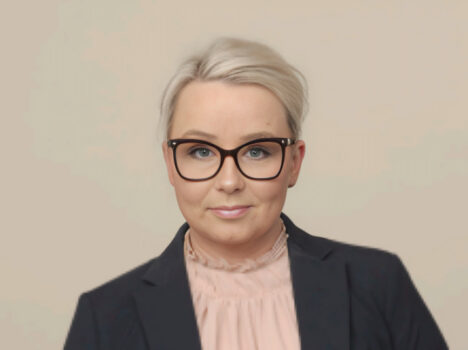
Dialogue
Emotional Skills over Academic Achievements – the Focus of Finnish Kindergartens
By Mirka-Marika Laaksonen, Quality Director at “Pilke päiväkodit” (part of “Dibber”) (known in Latvia as “CreaKids”)
Finland is a country often associated not only with high-quality education but also with leadership in the World Happiness Index (UN World Happiness Report). This year, Finland was named the happiest country in the world for the eighth consecutive time. Many experts emphasize that both the strong education system and Finland’s success in happiness rankings are not coincidences, but the result of consistent and purposeful effort. This intentional work begins already in early childhood education, where the main focus is not on academic achievements but on each child’s emotional, social, and communication skills.
In Finland, early childhood education is built as a balanced process of care, learning, and upbringing, where a child’s emotional well-being and sense of belonging are the foundation. In Finland, children are not expected to learn to read and write in preschool, although many do so through play before starting school. However, during the first two years of primary school, the focus is on learning to read and write. In May, during the “CreaKids” summit in Latvia and my visit to local kindergartens, I was pleasantly surprised to see how play is integrated with learning, such as children beginning to write in a fun and relaxed way. Most likely, the children don’t even realize they’re learning.
Learning Through Play – A Foundation for Successful Development
Our early childhood education is guided by the belief that children learn best through play. The learning process does not impose outcomes but instead encourages curiosity, cooperation, and active participation. Play is purposefully structured – it helps children develop group skills, emotional intelligence, conflict resolution, self-expression, and self-confidence. The most important aspect is high-quality interaction with the child – we focus on making the child feel safe and able to understand both their own and others’ emotions, and coexist peacefully with peers. These skills form the basis for later academic success.
The Role of Parental Involvement
Family plays a crucial role in a child’s development, and in the Finnish model, the cooperation between parents and educators is essential. Information about the child’s activities and well-being is shared during daily drop-off and pick-up times. Additionally, each child has an individual development plan that is created and reviewed twice a year. Parent evenings are organized regularly, informative emails are sent out, and active parent councils support the school. Trust is built through regular, honest, and open communication. It is important for parents to feel like a part of their child’s educational journey.
Every Child Matters
At the heart of Finnish early childhood education is an inclusive approach. This means that every child – regardless of their abilities, background, or needs – is accepted and supported. Support is provided based on each child’s individual needs and strengths, and is integrated into daily life, whether it be general, intensified, or special support. We believe that every child should be in an environment where they can be themselves – accepted and supported. This creates a sense of security and a foundation for healthy self-esteem.
A Child’s Relationship with Nature
In Finland, a child’s connection with nature is highly valued. Many preschools are nature-oriented, and outdoor time is not a seasonal activity – it is an essential part of everyday life. Nature is used as an environment for exploration, observation, and discovery. Children learn mathematical skills, environmental awareness, and even the basics of technology by exploring the world around them. Time spent outside is not just fresh-air play – it is also learning. Children observe, compare, ask questions, and search for answers themselves.
Our approach to early childhood education proves that emotional security, play-based learning, and strong collaboration with families create a solid foundation for a child’s holistic development. An inclusive environment, where every child is accepted as a unique individual, and a close connection to nature, helps children grow with confidence, curiosity, and joy. This harmonious and child-centered approach may well be one of the key reasons why Finland continues to lead in both education and global happiness.

 Log In
Log In